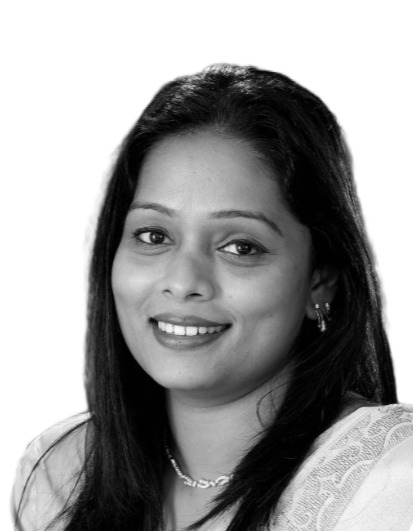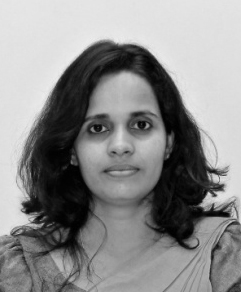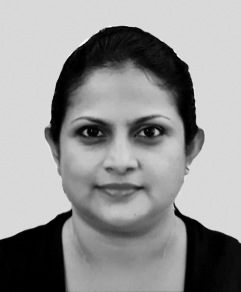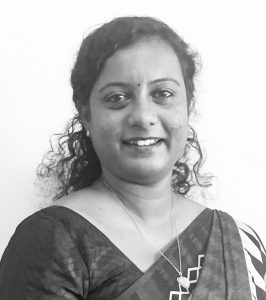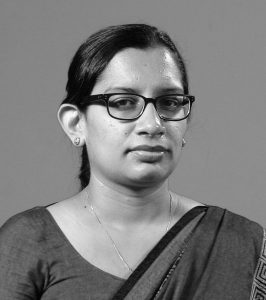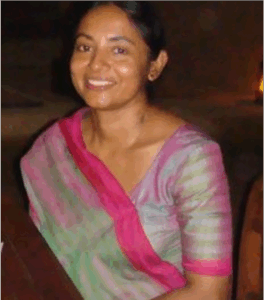
SLAIHEE wishes to announce the “Dr Shrinika Weerakoon Memorial Award for the Best Paper in Changing Higher Education Student Skills”. Awardees will first be selected at the 2018 Annual SLAIHEE Conference, and annually thereafter at each conference.
BACKDROP OF AWARD
The above award is to honour the memory of Dr Shrinika Weerakoon, whom we unfortunately lost with her untimely death in December 2017 while serving as Director of the Staff Development Centre (SDC) of the University of Colombo. Numerous academics tell of how she transformed their lives, primarily through the insights that she gave them into Reflective Practice, teaching improvements and life itself, mainly while teaching the Certificate in Teaching in Higher Education (CTHE) course, Making Teaching Effective (MaTE) course and other activities. These other activities included conducting numerous staff training workshops and also co-teaching the Accreditation of Senior Teachers in Higher Education (ASTHE) course at her Centre. She also trained administrative and clerical staff of universities and those of the SDC itself. She kept the Centre’s activities vibrantly alive, attracting academics and other categories of staff from all universities across Sri Lanka to its training programmes. Dr Shrinika also steered the SDC courses successfully through several iterations of international accreditation and her valued reflections are recorded on the SEDA, UK web pages.
She also formed and guided SLAIHEE as its Founder-Secretary and, later, as President. In these positions, as well as Chair of several annual conferences and as Executive Committee Member, her gentle persuasive nature made it possible to stamp on us the continuing need to review and bring about the quality enhancement of Higher Education in Sri Lanka.
Apart from contributing to staff training and development activities, she published widely with Sri Lankan as well as overseas collaborators. Her last paper submitted to an international journal was published shortly after her death.
She remained modest and humble, despite the many qualifications, recognitions and experiences she gained in several countries, such as her BSc, MSc, MBA(Perth), DBA (Bath, UK), SEDA Accredited Teacher, ASTHE. She was highly valued both in Sri Lanka and overseas, such as when she was Senior Fulbright Fellow at IUPUI, USA and a member of the International Consortium for Educational Development.
It was Dr Shrinika’s personal commitment which ensured that the SDC at the University of Colombo (established in 1997) continued to be highly recognised both nationally and internationally, not allowing for its high quality to be compromised by external pressures. Her skills at convincingly communicating what was the ‘right conduct’ and ‘right view’ to those in the university management and elsewhere helped. Her strong belief and practice of Buddhist principles helped her to successfully ‘swim against the current’ (‘Patisothagami’ characteristic) with ‘right resolve’, enabling her to stand steadfast to unwaveringly uphold the quality, standards and prestige that had been the hallmark of the Colombo SDC for 20 years.
To many who knew her, she was a trusted and reliable colleague, a friend, a guide, a rare role model, a change agent and someone who always found time to be there for you. In all that she did, Dr Shrinika epitomised a life that: “what you leave behind is not what is engraved in stone monuments, but what is woven into the lives of others” (Pericles). Dr Shrinika, as she was fondly called, thus became an irreplaceable Higher Educational Developer.
SLAIHEE, along with the higher education community who knew her, pay tribute to Dr Shrinika’s unparalleled services and everlasting memory by the initiation of this award, linking it to skills development, an aspect that was close to her heart and to which she dedicated her life.
AWARD TIMING & SELECTION CRITERIA: This Certificate of Award will be awarded at each SLAIHEE Annual Conference, preceded by the announcement of winner on the SLAIHEE web site. The award will usually be made to a single awardee, based on selection criteria that include impact on student skill development, on peers’ perceptions on the usefulness of methodology to their own practice, the quality in delivery and in writing, and on the effective integration of relevant scholarship.
THE AWARD WILL INCLUDE the following;
- A Certificate of Award
- Complimentary Full Membership for 2 subsequent years of SLAIHEE
- Complimentary Conference registration at following year’s conference
- Special Plenary Presentation slot at following year’s conference to tell conference participants, on how awardees were motivated to begin their teaching changes and on related activities awardees conducted over the year between the two SLAIHEE Conferences
- Profiling on SLAIHEE web-site
- Support by SLAIHEE to be associated with SLAIHEE’s staff development activities
